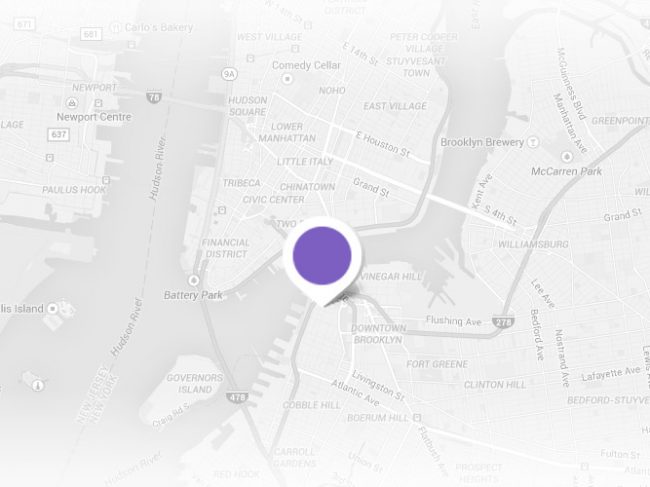OWI cases in Indiana are generally misdemeanor offenses, but the penalties in Indiana for drunk driving cases can increase dramatically in cases where the alcohol level is .15 or greater. Many courts require a jail sentence, even for first-time offenders, especially if the OWI is with an alcohol level of .15 or more. That’s why it’s important to contact an experienced DUI attorney right away.
Indiana OWI cases are generally misdemeanor offenses, but the penalties in Indiana for drunk driving cases can increase dramatically in cases where the alcohol level is .15 or greater. Many courts require a jail sentence, even for first-time DUI offenders, especially if the OWI is with an alcohol level of .15 or more. That’s why it’s important to contact an experienced Indiana DUI attorney near you right away.
Indiana OWI cases (short for Operating While Intoxicated) can be prosecuted on one of two theories: Either the state will try to prove that a person was operating a vehicle at a time they were intoxicated (meaning that they suffered a loss of control of their normal thought and faculties as the result of consuming alcohol and/or drugs), or by violating the per se law, meaning that they drove with a blood-alcohol level of .08% or more.
OWI cases in Indiana are generally misdemeanor offenses, but the penalties in Indiana drunk driving cases can increase dramatically in cases where the alcohol level is .15% or more.
Drunk driving laws in Indiana are unique in one respect: Indiana OWI arrests result in the law enforcement officer selecting a choice of blood, breath, or urine testing to determine the alcohol content of the person arrested for drunk driving. The person arrested for drunk driving in Indiana has no right to select the test, nor any right to consult with a lawyer before deciding whether or not to submit to the test.
The policeman is supposed to take your license at the time of your arrest and give you a receipt for it. You are not suspended when the officer takes your license. In fact, you can apply for a duplicate license until your suspension by the Court or the Indiana Bureau of Motor Vehicles (BMV). A duplicate license is a great idea for identification purposes to save you humiliation when asked for I.D. Of course, once the Court or BMV tells you that you are suspended, you can no longer drive and your duplicate license is not valid for driving or identification.
In Indiana, there are at least three (3) recidivist or repeat offender consequences for OWI. First, and most serious, Indiana has a habitual substance offender statute that could yield up to 8 additional years in jail if filed against a client with two (2) or more prior offenses. Second, a felony OWI in Indiana usually involves a prior offense within 5 years of the current charge. Finally, habitual traffic violator status is imposed on OWI offenders who accumulate three (3) OWI’s in a ten (10) year period. Therefore, prior offenses can be an important part of the case. Your lawyer must examine the validity of the prior offense and determine if post-conviction relief might eliminate one of those offenses.
If you are convicted of OWI in Indiana, a range of punishments can be imposed.
- First offenders: Can expect probation, payment of restitution, a license suspension, and payment of court costs. Many courts require a jail sentence, even for first offenders, especially if the OWI involves an alcohol level of .15% or more.
- Second offenses carry greater penalties. A felony may be imposed and reduced later; jail time may be required; probation; road crew; public restitution; home detention; and increased costs. 6 months to 1 year is a typical license suspension for a second-time OWI.
- Third or subsequent offenses largely depend on the timing of your prior offenses. If you are a habitual traffic violator eligible, you will lose your license for 10 years, plus anywhere from 3-9 months of jail time and lengthy probation. You may qualify for drug or alcohol court.
Indiana OWI lawyers know that cases involving accidents and injuries usually require jail in the event of a conviction.
These penalties do not reflect the additional administrative driver’s license suspension imposed in Indiana OWI cases. In 1983, Indiana law changed to allow an administrative suspension of your driver’s license if you either failed or refused a chemical test – defined as a breath, blood, or urine test for alcohol or drugs.
Your administrative suspension is for 180 days if you failed a chemical test or, for 1 year if you refuse a chemical test.
Unfortunately, the fastest way for a first offender to regain their driver’s license is to plead guilty. From 1983 to the present, Indiana law has been written to coerce you to plead guilty if you want a quick and easy solution to license suspension.
A guilty plea in a first offense case typically will allow you to choose either a 90-day license suspension with high-risk insurance (SR-22) required, or, a 30-day license suspension to be followed by 180 days of probationary driving for work, school, or other proper purposes. High-risk SR-22 insurance may not be required if you select a probationary license.
If you do decide to fight your case in court, it is still possible to obtain a “hardship” license if it is a first offense case. You must file a lawsuit in the Circuit court of your home county. You do not qualify for a hardship license if you refused a chemical test.
WARNING: this license is the most restrictive in Indiana by statute; its enforcement depends on the leniency of your judge.
A separate attorney fee is typically charged to file this lawsuit and there is a filing fee. It is critical that you consult with a skilled Indiana drunk driving defense lawyer who understands how to defend these matters.
There are different suspensions imposed in Indiana OWI cases, depending upon whether there is a conviction in criminal court or not. All suspensions for convictions are different from administrative suspensions from the BMV because you have been found guilty either by plea bargain or jury trial.
- First offenders who failed a chemical test typically may choose a 90-day license suspension or the 30-day suspension and 180-day probationary license. There will be some administrative suspension credit,
- First offenders who refused a breath test are suspended for 90 days from the date the sentence is imposed, and there is no credit for the administrative suspension.
- For repeat offenders, assuming you are not habitual offender eligible, if your prior conviction is less than 5 years from your current conviction, a mandatory 1-year license suspension is required. If your prior conviction is more than 5 years but less than 10 years from your current conviction, a mandatory 180-day license suspension is required. If your prior conviction is greater than 10 years from your current conviction, a 90-day suspension is a minimum.
In all cases, the above suspensions are mandatory minimums, and the judge may increase those suspensions.
- If you have 3 major traffic violations in a 10 year period you may lose your license for 10 years.
- If you have 1 major violation, plus 9 or more minor moving violations like speeding, then you may lose your license for 5 years.
- If you drive after being found a habitual offender, you can lose your license for life.
- If you drive suspended after a drunk driving conviction suspension, there is a mandatory 60-day jail sentence.









